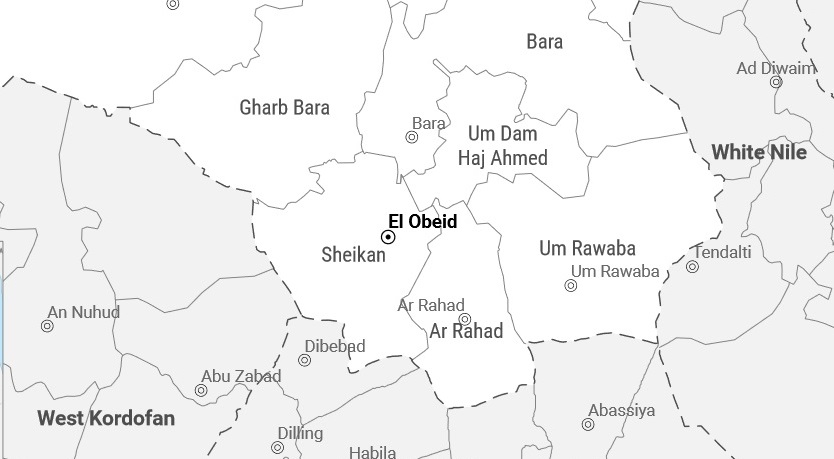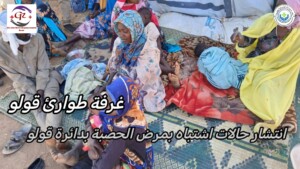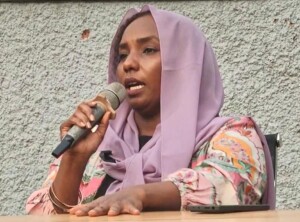Cholera and dengue fever rates increase in North Kordofan

The southern localities of North Kordofan (OCHA map, 2021)
The North Kordofan Health Ministry yesterday reported an increase in cholera and dengue fever patients. At least 47 cholera cases and 817 dengue fever cases have been recorded this month. The supply of medicines in the state is sufficient for one month.
Iman Malik, director of the North Kordofan Ministry of Health, Welfare and Society said in a press statement yesterday that all 47 cholera cases were registered in Um Dam locality, northeast of the capital El Obeid. “The first case of cholera, imported from neighbouring localities, was recorded in the locality on January 14.”
She said that the cumulative number of dengue fever cases in the state reached 817 cases, an increase of six cases from last week.
The first case was recorded on September 12, after which dengue fever patients were recorded in five localities in the southern part of North Kordofan: Sheikan, El Rahad, Um Rawaba, Um Dam, and Bara.
“Dengue fever has been endemic in the state since 2018,” Malik explained, and noted “a significant reduction in the incidence of neglected tropical diseases such as schistosomiasis, filaria, leishmaniasis (kala azar) and mycetoma.
The North Kordofan government spokesperson, Abdelmuttalib Abdelmut’aal, said that the stock of medicines in the state is sufficient for a month. New supplies of medicines are on their way from Port Sudan.
He further reported the cessation of water wells in the southern parts of North Kordofan, for reasons he described as “well-known”, referring to the control of the Rapid Support Forces (RSF) of various areas there. The northern water sources include 38 wells, of which 18 are operating, 15 are to be repaired, and five have been fully disabled.
As for power provision, efforts are being made to address the repeated outages, he added.
Other parts of Sudan are also grappling with a cholera outbreak. Data from the Sudanese Ministry of Health and the World Health Organisation (WHO), quoted by the UN Office for the Coordination of Humanitarian Affairs (OCHA), showed that suspected cholera cases increased by more than 20 per cent since mid-December.











 and then
and then